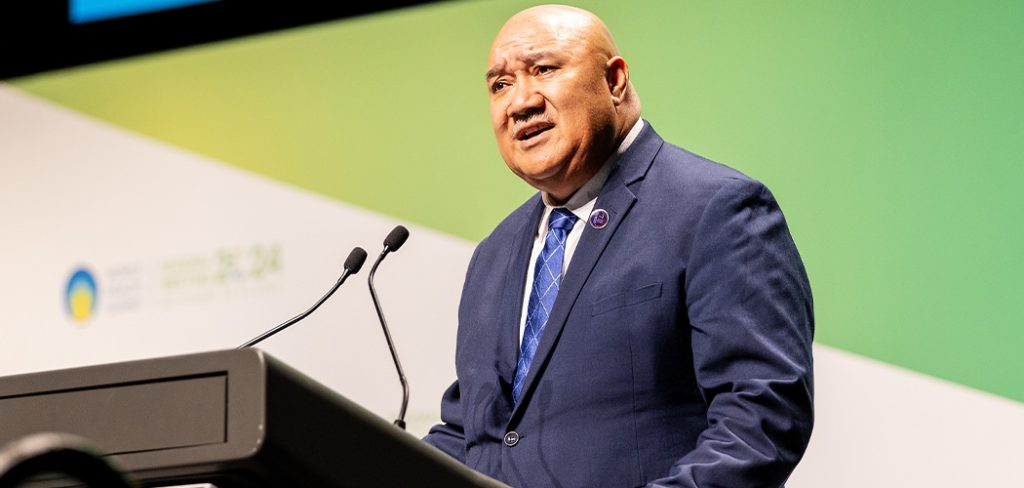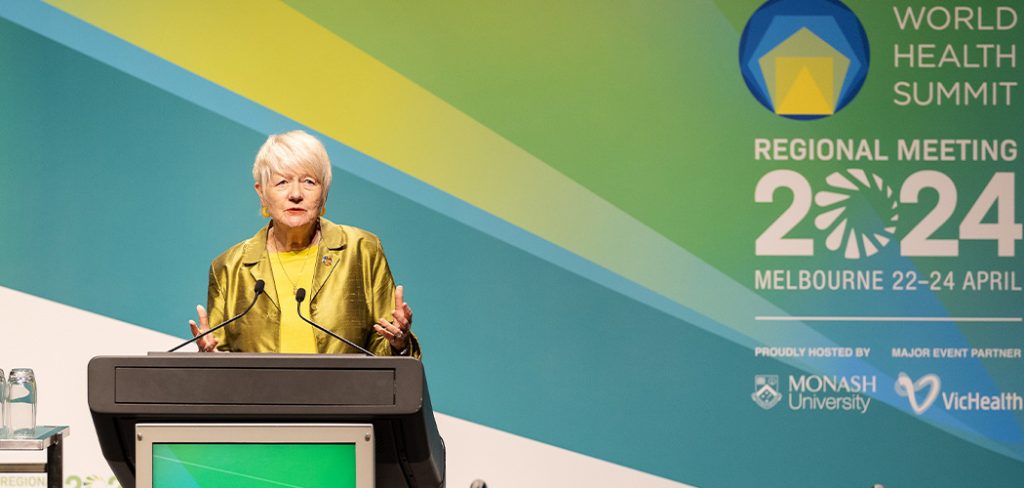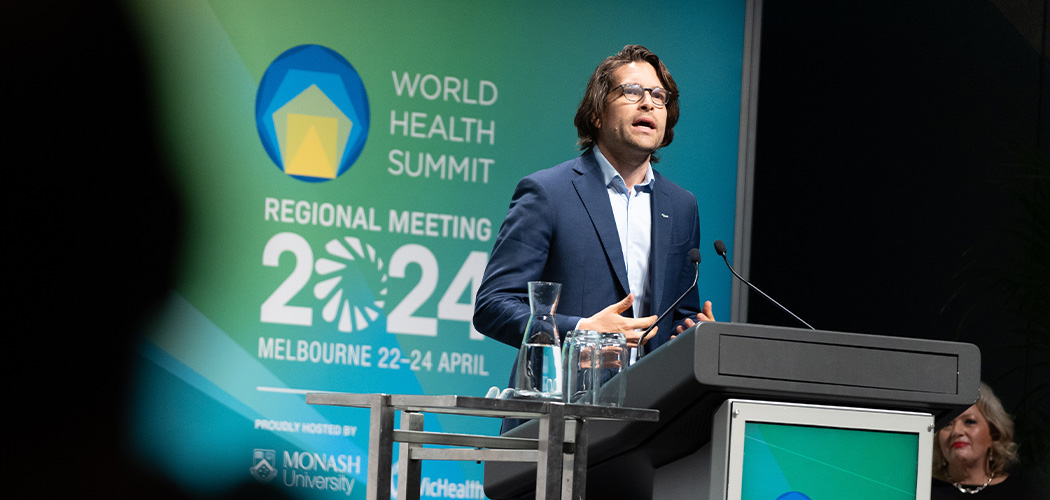“By working together across disciplines and sectors we can foster more resilient and equitable systems for health that truly leave no one behind,” declared Sandro Demaio, CEO of VicHealth, as the 2024 World Health Summit Regional Meeting kicked off in Melbourne on Monday.
This week, global leaders have come together to discuss key challenges and opportunities for health across Asia and the Pacific, with an emphasis on building collaborations to co-create pathways forward that can deliver better health outcomes for all.
Chairing the opening session, Shaping the future of health across Asia and the Pacific, Dr Demaio said the 2024 Summit, the first held in Melbourne, arrived at a critical juncture for global health amid pressing challenges including widening health inequities, escalating geopolitical tensions, climate driven-health crises, and the ongoing impacts of preventable diseases.
Making meaningful action requires confronting the stark reality of widening health inequity, especially among marginalised communities, listening to diverse perspectives, and working together to promote health and wellbeing, said Dr Demaio.
“The health of one community, of one region, is inextricably linked to the health of all. As such, we must reaffirm our commitment to multilateralism, cooperation, and diplomacy as essential tools for promoting health and wellbeing at the global scale.”
Guest speaker Dr Saia Ma’ u Piukala, the World Health Organization’s (WHO) Regional Director for the Western Pacific, said as the world grapples with multiple crises, from conflicts to the post-pandemic period, there are two types of healthcare systems – one for the rich, and one for the poor.

“Two out of every five people living in the Western Pacific still can’t get essential health services and that is a staggering 782 million out of the 1.9 billion people in the region that are struggling to find the basic care they need,” he highlighted.
“These are the problems of today, but if we can’t find a way to get them right, they will also be our failures of tomorrow.”
To sustain good health in the face of mounting challenges, Dr Piukala, who has nearly 30 years’ experience as a politician, public health leader and surgeon, agreed that solidarity was one of the key solutions but stressed it could only be possible through mutual respect and trust, including adapting to local solutions.
“Our priorities are clear,” he said.
“Promote an integrated approach to health system development, which uses primary healthcare to achieve universal health coverage. That is how we will address the leading causes of disease and the inequities.”
Action on climate change and building on the lessons of the pandemic before the next one arrives are among other leading challenges, he said, saying that improving equitable access to healthcare over coming years demands listening and engaging with diverse communities.
Fellow speaker Dr Lucas de Toca, Australia’s Ambassador for Global Health, told delegates health systems everywhere are working under constrained budgets as the world emerges from the pandemic.
Dr de Toca said Australia’s position as a high-income country well-connected to the world meant it was well-placed to lead shared challenges facing Asia and the Pacific. He said his role is focused on ensuring that global health systems focus on equity, and that Pacific and Southeast Asian perspectives are strongly represented so that the diverse and complex health challenges the regions face are addressed.
Professor Adeeba Kamarulzaman, CEO of Monash University Malaysia, highlighted the complexities, socioeconomic differences, and emerging health challenges of the Southeast Asian region, home to almost 700 million people, a hundred ethnic groups, and more than a thousand languages and dialects.
According to Professor Kamarulzaman, the rapidly ageing region faces a large non-communicable disease burden, with cardiovascular diseases, chronic respiratory diseases, diabetes, and cancer, the top killers, claiming about 8.5 million lives each year.
She listed antimicrobial resistance, which doesn’t often get talked about, along with climate change, and rising mental health issues, as other key health challenges.
“Many countries in the region fall into either emerging economies or [are] doing very well,” she said.
“I think there is a huge opportunity, particularly for countries who are shaping their health system, who are shaping digital health, to not be settled with some of the legacy systems and to really design health, and also rebuild health systems, after the Covid pandemic, that is patient-centred, that integrates infectious diseases and non-communicable diseases, all the way from prevention, diagnosis, treatment and care.”

Renowned Professor Ilona Kickbusch, Founding Director, Global Health Center, Graduate Institute of International and Development Studies, Geneva, and Co-chair, Council of the World Health Summit, listed trust, in governments, institutions, and people within communities, as a vitally important factor, as evidenced by the COVID-19 pandemic, in achieving global health objectives. The challenge now is to build resilient communities based on trust, and, importantly, to view distrust as a public health risk.
“As public health professionals, I think we need to strengthen that public health perspective on trust and to start seeing low public trust as a risk factor,” Professor Kickbusch explained.
“And that risk factor of low public trust is linked to the social determinants of health. It is linked to the lack of fairness. And democracies must consider how to address that because a democracy cannot function with an increasingly divided community and if we are not listening to those, that through their distrust, are actually expressing to us that their needs are not being met.”








